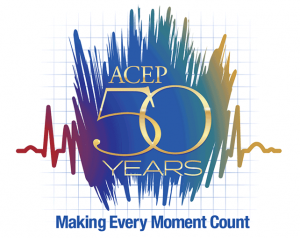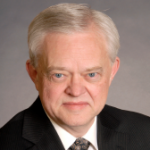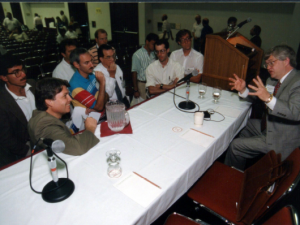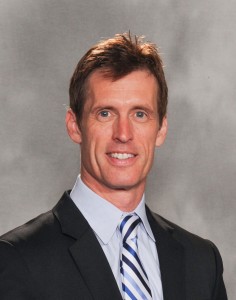 As part of our celebration of ACEP’s 50th anniversary, ACEP Now Medical Editor-in-Chief Kevin Klauer, DO, EJD, FACEP, recently sat down with ACEP Past President Gregory L. Henry, MD, FACEP, clinical professor in the department of emergency medicine at the University of Michigan Medical School in Ann Arbor, to discuss key moments in ACEP’s history and to consider what might be in store for ACEP’s future. Here are some highlights from their conversation.
As part of our celebration of ACEP’s 50th anniversary, ACEP Now Medical Editor-in-Chief Kevin Klauer, DO, EJD, FACEP, recently sat down with ACEP Past President Gregory L. Henry, MD, FACEP, clinical professor in the department of emergency medicine at the University of Michigan Medical School in Ann Arbor, to discuss key moments in ACEP’s history and to consider what might be in store for ACEP’s future. Here are some highlights from their conversation.
Explore This Issue
ACEP Now: Vol 37 – No 09 – September 2018KK: I’m so excited to culminate the 50th anniversary series with, you, Dr. Henry. You always have words of wisdom in many circumstances. Over the course of your time with ACEP, what are some notable points in history regarding the specialty?

Dr. Greg Henry (Photo: ACEP)
GH: I remember those days [becoming a specialty] clearly because I was living in the Phi Rho Sigma medical fraternity house across the street from St. Joseph Mercy Hospital [in Ann Arbor]. One day in 1968, I went to the ED. The gentleman who would usually let me shadow him [George Fink, MD] was gone.
George had gone to Lansing to sign the papers for a new organization called ACEP. Things had changed in America since the end of the Second World War. There was huge mobility, and lots of people didn’t have doctors. We also learned that we needed to be proactive to change the outcome of certain diseases. Shakespeare said it best: “Diseases desperate grown by desperate appliance are relieved, or not at all.” The emergency departments in the United States had been staffed by fill-in people who were dermatologists, allergists, internal medicine, ob-gyns, etc., who took their turn in the barrel once every month or so. People were starting to realize that was the wrong way to do it. The first critical hour was where emergency care should concentrate its efforts.

Dr. Henry speaks with ACEP members after a presentation.
KK: Knowing the criticisms that those initial founders received, what are some of the foundational pieces that helped us to be recognized and respected as a specialty?
GH: The first hurdle was psychological. You had to believe you were as good a doctor as anyone else. The second was that we needed a reasonable training process. The third thing was the first board examination in emergency medicine. We did it better than any other board at that point in time. We really looked at how questions were framed. Were they true discriminators of knowledge, and did they predict success, producing better doctors?
Pages: 1 2 3 4 | Single Page





One Response to “Interview with ACEP Past President Gregory L. Henry, MD, FACEP”
October 2, 2021
Bones McCoy, MD, MPHDear ACEP/EPMG,
In the days working in Dr Henry’s maze of ER hospitals
up in North Michigan, we were treated as docs. The boards for qualifying in ER was MD/DO/AAPS that allowed
folks to qualify if trained in another residency field.
I told Dr. Henry I would take the AAPS route as they were based on hours in ER+ a residency in primary care.
In Florida I finished a primary care training and worked in ER w/out any credentialing issues. But,soon afterwords AAPS was not being accepted other than FL/TX
and a few rural arenas. FYI for future ER docs.